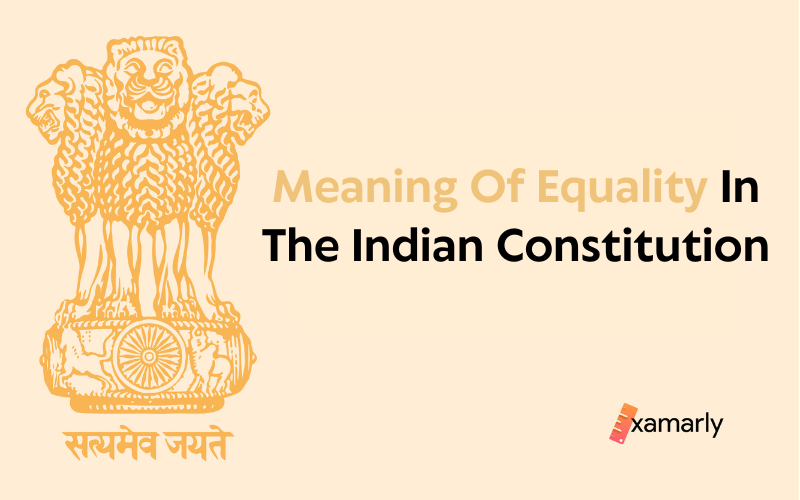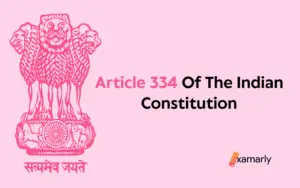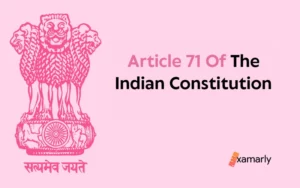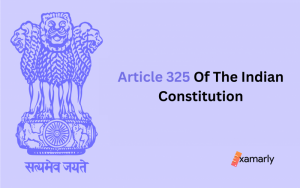No one should experience any form of unfairness or discrimination, according to the meaning of equality in Indian constitution.
All citizens of the nation are guaranteed equality of status and opportunity under the Preamble of the Constitution of India.
There was to be an end to all types of inequality, whether they were based on caste, gender, or the idea of rulers and ruled.
Compared to the concepts of uniformity, identity, and sameness, equality is used differently by political scientists.
The pursuit of equality does not mean eradicating diversity.
The Preamble’s use of the word “equality” and its context is explained in this article, along with the constitutional provisions that can be used to guarantee equality.
- Meaning Of Equality In Indian Constitution Of The Preamble
- Equality In Indian Constitution
- Fundamental Rights Ensuring Equality
- Constitutional Rights Ensuring Political Equality
- Directive Principle Ensuring Equality
- Features Of Equality
- What Is Equality Before Law?
- Types Of Equality
- Conclusion
- FAQs On Equality In The Constitution Of India
- From Where Preamble Taken The Word Equality?
- Is Equality An Essential Human Right?
- What Do Opportunity And Educational Equality Mean?
- What Is The Right To Equality In Indian Constitution?
- What Is The Meaning Of Equality In Indian Constitution?
- What Are The 3 Types Of Equality?
- Why Equality Is Significant?
- What Fundamental Rights Include?
Meaning Of Equality In Indian Constitution Of The Preamble
The concept of “equality” in the Indian Constitution refers to the dearth of special advantages for any group within society as well as the availability of equal chances for everyone, regardless of background.
Equal opportunity and status are guaranteed to all Indian citizens under the Preamble.
The three facets of equality—civic, political, and economic—are all included in this special provision.
The term “Equality” is based on the concept that all men are born free and equal.
The Fundamental Rights, which are written in the constitution, provide “equality before the law” and “equal protection of the laws.”
The importance of equality in the constitution of India can be encapsulated as the protection of one’s “dignity.”
Respect for oneself and for others for being fellow humans are both components of dignity.
Despite the fact that all Indian citizens have the right to equality, discrimination on the grounds of race, caste, religion, origin, or gender still exists in many areas of the country. For this reason, the constitution’s authors made it clear that everyone residing on Indian territory has this right.
Equality In Indian Constitution
Fundamental Rights Ensuring Equality
Civic equality is ensured by the following provisions in the Fundamental Rights chapter:
- Article 14 of the Constitution deals with the equality before Law
- Article 15 of the Constitution deals with the prohibition of discrimination on grounds of religion, race, caste, sex, or place of birth
- Article 16 of the Constitution deals with the equality of Opportunity in matters of public employment
- Article 17 of the Constitution deals with the abolition of Untouchability
- Article 18 of the Constitution deals with the abolition of titles
Constitutional Rights Ensuring Political Equality
The Constitution contains two provisions that ensure political equality.
- Article 325 – No one may be excluded from the voting rolls due to their religion, race, caste, or sex, according to Article 325.
- Article 356 – According to Article 356 of the Indian Constitution, elections for the Lok Sabha and state assemblies must be held using adult suffrage.
Directive Principle Ensuring Equality
- Article 39 of the Constitution of India guarantees that men and women have an equal right to a sufficient means of subsistence and equal wage for equal effort.
Features Of Equality
- Equal may not necessarily mean perfect equality. It acknowledges that there are certain disparities in nature.
- Equality is the absence of all artificial, man-made inequities and particularly privileged classes in society.
- The premise of equality is that all people should be granted and guaranteed the same rights and liberties.
- By definition, equality entails a system that provides each member of society with fair and appropriate chances.
- Equality promotes the narrowest gap between the rich and the poor, which is what is meant by an equitable and fair allocation of wealth and resources.
- In order to fulfill special demands and some people’s luxuries, equality means that all people’s basic needs are addressed equally before those of others.
- Protective discrimination for the benefit of society’s most vulnerable groups is accepted as a principle of equality. Even while the Indian democratic system has granted everyone the right to equality, it also includes provisions for giving minorities, women, children, members of the scheduled castes and tribes, and other backward classes of citizens particular protective facilities and reservations.
Therefore, equality stands for the following three fundamental characteristics:
- The absence of exclusive rights in society.
- The availability of sufficient and equitable chances for personal growth for everyone.
- Equal fulfillment of everyone’s fundamental requirements.
Candidates can get ready for the UPSC exam by reading the following articles about Indian politics:
What Is Equality Before Law?
- This dynamic concept was borrowed from the English Common law.
- According to this article, every individual is equal in front of the law. Hence, all people will be treated as equals in front of the law.
- Every person is entitled to be protected by the law of the country in an equal manner. Further, it means that the law should be equal, the law should be equally applicable to all, and that all should receive the same treatment before the law.
- Also, the law will impart equal treatment under the same conditions.
- Equality before the law also explains that everyone, regardless of rank or position, is under the authority of ordinary courts.
- This is a negative concept as it since it suggests that there are no special privileges that benefit any particular person.
Types Of Equality
Depending on the type of equality you are talking about, there are different ways to define it. For instance, there is natural equality, social equality, and political equality. Each one of these has its own characteristics, and you should be able to find something that fits your needs.
Social Equality
It means equal rights and opportunities for all citizens. It also means eradication of social and economic imbalances.
As a result of their birth, class, caste, religion, color, race, gender, or social status, no citizen of the country should be deprived of rights, privileges, or opportunities.
It is important to offer everyone a fair chance for personality development.
Social equality requires a few essential components.
In particular, it stands for
- The lack of any special status of a citizen on grounds of caste, class, religion, or ethnicity;
- The outlawing of discrimination against anyone based on their caste, color, creed, religion, sex, or place of birth;
- There is no social division and everyone has free access to public spaces;
- All people should have equal availability to opportunities. However, it recognizes the idea of protective discrimination in support of all socially disadvantaged groups.
The elimination of gender inequality, equalizing women’s status and opportunities, and ensuring that male and female children have the same rights to life and development are today’s central themes of social equality.
Civil Equality
It advocates granting all individuals and societal groups the same rights and liberties.
Everyone must be treated equally in front of the law.
Economic Equality
Equal treatment, compensation, or pay for all does not constitute economic equality.
It advocates giving everyone access to sufficient and equitable possibilities in matters of employment and income generation.
It also implies that the basic needs of everyone should come first, followed by the exceptional requirements of a handpicked few.
A minimum disparity between the rich and the poor is desired. In society, wealth and resources ought to be distributed fairly.
Natural Equality
Men differ from one another in terms of their physical characteristics, psychological characteristics, and mental capacity, yet all people should be treated equally.
All people should be seen as deserving of all freedoms and human rights.
Political Equality
It promotes equitable chances for everyone to participate in the political process.
This is related to the idea of granting all citizens equal political rights with some set requirements.
Legal Equality
Legal equality also refers to everyone being treated equally before the law, being subject to the same set of laws, and having an equal chance to get legal protection for their freedom and rights.
Laws must apply equally to all people and there must be a rule of law.
All of these aspects of equality must be guaranteed in every society.
Conclusion
Equality should be viewed as the guiding principle for national development, according to Dr. B.R. Ambedkar. Equality is viewed as the cornerstone of contemporary democratic theory. In order to ensure equality, the government has implemented various programs to reduce inequality.
In a country like ours, there is diversity at every step of life. Economic, social, and political differences can be curbed through the concept of equality. In a democratic nation, equality is an essential basic right of every class of citizen. Not everyone is born equal or has equal access to opportunities and facilities. The right to equality works as an equalizer here. After all, discrimination must be eliminated in order to attain equality in a practical sense.
FAQs On Equality In The Constitution Of India
From Where Preamble Taken The Word Equality?
Our Preamble borrows the principles of liberty, equality, and fraternity from the French Revolution (1789–1799).
Is Equality An Essential Human Right?
One of the cornerstones of international human rights law is the prohibition of discrimination and the right to equality.
What Do Opportunity And Educational Equality Mean?
The state should offer similar and comparable opportunities to all citizens in matters relating to education and employment. Equal opportunities for education and personal growth should be available to all residents. Discrimination should be ended on the basis of race, caste, religion, language, wealth, and gender.
What Is The Right To Equality In Indian Constitution?
One of the six essential rights recognized by the Indian Constitution is the right to equality. It entails the equal treatment of all people before the law and the outlawing of discrimination on the basis of race, gender, caste, or place of birth. It also covers the eradication of the practice of untouchability and titles, as well as equality of opportunity in work.
It is the right to live with equal opportunity, to put it simply. It merely treats everyone equally and prohibits anyone from receiving a particular favor that would bring dishonor upon any individual or group. Every person is guaranteed an equal level of protection under the law under Article 14 of our constitution.
What Is The Meaning Of Equality In Indian Constitution?
The founding fathers of the Constitution emphasized the value of equality in the Preamble. In a constitutional democracy, equality entails receiving the same level of justice. No one is exempt from the law or outside its purview, and no one is entitled to unjust privileges or to be punished differently depending on the law.
What Are The 3 Types Of Equality?
Civil, Political, and Economic Equalities are the three types of equality in the constitution of India that are enlisted in the Preamble.
Why Equality Is Significant?
Equality is significant in the Indian Constitution as equality protects a person’s “dignity.”
What Fundamental Rights Include?
Individual rights like equality before the law, freedom of speech and expression, the right to free association and peaceful assembly, the right to freedom of religion, and access to constitutional remedies for the preservation of civil rights through writs like habeas corpus are all included in the category of fundamental rights. These liberties are also shared by the majority of liberal democracies.






